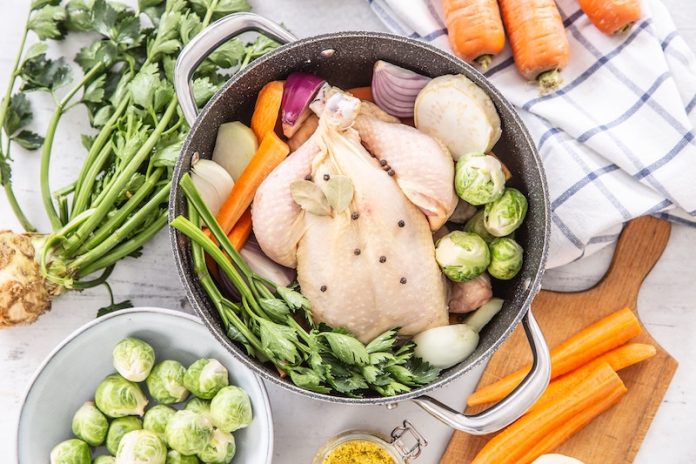
A stroke occurs when there is a disruption in the blood supply to the brain, resulting in damage to brain cells.
Stroke recovery involves various treatments and rehabilitation, including a focus on nutrition.
In this study review, we will explore the best and worst foods for stroke recovery based on scientific research.
Understanding Stroke and Recovery
A stroke can have long-lasting effects on a person’s physical and cognitive abilities. Stroke recovery aims to improve these functions and restore independence.
Proper nutrition plays a crucial role in supporting the healing process and optimizing recovery.
Best Foods for Stroke Recovery
Several foods have been found to support brain health and aid in stroke recovery. These include:
Fruits and Vegetables
Fresh fruits and vegetables are packed with vitamins, minerals, and antioxidants that promote brain health. They provide essential nutrients for the healing process and support overall well-being.
Research Evidence: A study published in the journal Stroke found that a high intake of fruits and vegetables was associated with a reduced risk of stroke and improved cognitive function.
Whole Grains
Whole grains such as whole wheat bread, brown rice, and oats provide fiber, vitamins, and minerals that support brain health and overall recovery. They help regulate blood sugar levels and provide sustained energy.
Research Evidence: A study published in the journal Nutrients revealed that a diet rich in whole grains was associated with a lower risk of recurrent stroke and improved cognitive function in stroke survivors.
Lean Protein
Including lean protein sources like fish, chicken, beans, and tofu in the diet can aid in stroke recovery. Protein is essential for repairing and rebuilding tissues, including the brain.
Research Evidence: A study published in the Journal of Nutrition, Health & Aging suggested that a higher intake of protein in stroke survivors was associated with better functional outcomes and improved muscle strength.
Worst Foods for Stroke Recovery
Certain foods should be consumed in moderation or avoided during stroke recovery to support optimal healing and overall health. These include:
Processed and Sugary Foods
Processed foods, such as fast food, sugary snacks, and desserts, should be limited as they are often high in unhealthy fats, added sugars, and sodium. These can contribute to inflammation and hinder the recovery process.
Research Evidence: A study published in the journal Stroke identified a link between a high intake of processed and sugary foods and an increased risk of recurrent stroke and poor functional outcomes.
Trans Fats
Trans fats, often found in fried and processed foods, can contribute to inflammation and increase the risk of heart disease. Avoiding foods that contain partially hydrogenated oils is essential for stroke recovery.
Research Evidence: A study published in the journal Neurology found that higher consumption of trans fats was associated with an increased risk of stroke and poorer cognitive function.
Excessive Salt
Consuming excessive amounts of salt can raise blood pressure, which is a risk factor for stroke and can impede recovery. Limiting salt intake can support a healthy blood pressure level.
Research Evidence: A study published in the journal Stroke showed that reducing salt intake was associated with a lower risk of stroke and improved recovery outcomes.
Proper nutrition plays a vital role in stroke recovery. Consuming a balanced diet rich in fruits, vegetables, whole grains, and lean protein sources supports brain health and aids in the recovery process.
Limiting the intake of processed and sugary foods, trans fats, and excessive salt can further enhance recovery outcomes.
By making these dietary choices, individuals can optimize their recovery and improve their overall well-being after a stroke.
Note: This study review is intended for educational purposes and should not replace personalized medical advice. If you have concerns about stroke recovery or dietary recommendations, consult a healthcare professional.
If you care about stroke, please read studies about a breakfast linked to better blood vessel health, and olive oil could help lower risks of heart disease and stroke.
For more information about health, please see recent studies about how the Mediterranean diet could protect your brain health, and wild blueberries can benefit your heart and brain.
Copyright © 2023 Scientific Diet. All rights reserved.





